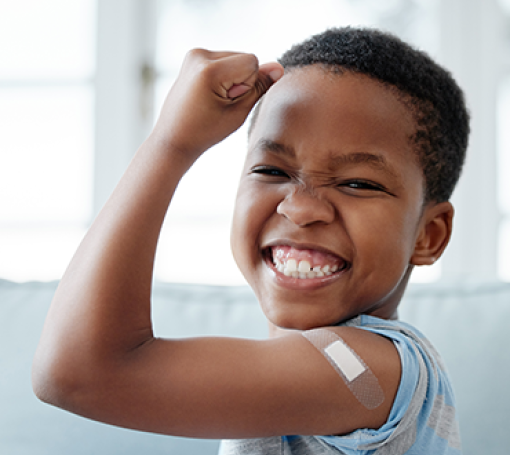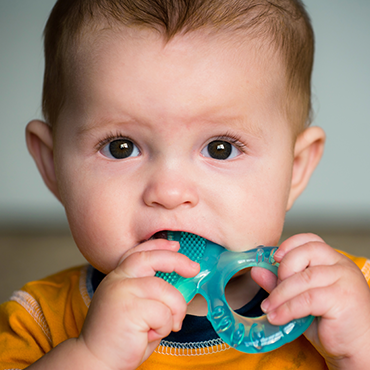Teething is a process in which the first set of teeth, called primary teeth, erupt and break through the gums. Your baby might experience discomfort or irritability from teething, and you may be tempted to apply teething medications for relief. The American Academy of Pediatrics recommends that parents avoid teething medications with benzocaine, as it can cause rare but deadly side effects in infants and children. Additionally, the Food and Drug Administration (FDA) is warning companies to stop selling teething products containing benzocaine.
Benzocaine is in many teething medications including Anbesol, Baby Orajel, Cepacol, Chloraseptic, Hurricaine, Orabase, Orajel, and Topex, as well as generic and store brands advertised as relieving oral pain.
Benzocaine is dangerous because it can cause methemoglobinemia – a condition that causes a reduction in blood oxygen and can be fatal. Symptoms of methemoglobinemia you may notice in your baby include: pale, gray or blue skin, lips or nail beds; shortness of breath; unusual tiredness; headache and rapid heart rate. If your child experiences these symptoms after using a teething medication containing benzocaine, please seek immediate medical attention.
Other teething products to stay away from due to potential side effects include teething tablets and gels containing a plant-based ingredient called belladonna and amber teething necklaces.
There are many safe and effective things you can do to help your teething baby such as: provide a teething toy or object to chew on, massage their gums, or offer a dose of pain medication. A full overview of teething and how to comfort your baby when they are teething can be found in our blog Is It Teething? by Dr. Tiffany Spanier.
Keep Reading
View All Posts
Tips for Navigating Flu Season
Getting a flu vaccine is one of the most effective ways to prevent the spread of influenza and reduce the risk of complications.

Measles FAQs
The MMR vaccine is a safe and effective way to protect against measles. Learn answers to commonly asked questions about measles.

Helping Kids Breathe Easier
By checking asthma control at every well care visit, we can identify changes early and make sure each child has the support they need to breathe comfortably and stay active.

